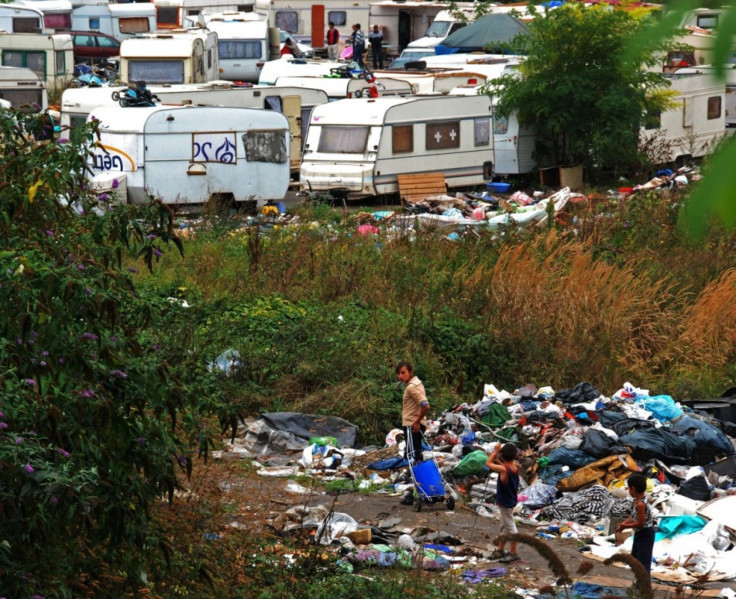Plus Ça Change: France Opens Jobs To Roma People After Destroying Their Encampments

In an apparent about-face, France will abandon some of its discriminatory policies against Roma immigrants and give them greater access to the French job market.
French Prime Minister Jean-Marc Ayrault announced on Wednesday that the government would stop taxing French employers who hire immigrants from Romania and Bulgaria, the two countries from which most Roma people hail.
Those were the only two EU countries whose immigrants were subject to France's employer taxation policy. Until now, French business owners were obliged to pay up to $2,200 per Romanian or Bulgarian worker, according to the BBC.
In addition, a list of 150 jobs currently available to the Roma -- it includes mostly physical labor and trade jobs -- will be extended.
The Roma people are often referred to as "Gypsies," though many consider this a derogatory term. Today, there are about 12 million Roma living all across Europe. Most reside in Eastern Europe; they account for at least 10 percent of the population in Romania and Bulgaria.
The Roma people migrated into Europe from India several centuries ago. Many generations have passed since that mass migration, and in assimilating to the countries of their residence, the Roma have become a diverse people. Across the continent, different groups speak separate languages and adhere to different religions.
But this European assimilation has been limited by a continuing pattern of marginalization. The Roma are routinely discriminated against, and this has created a vicious cycle. Unable to find employment and secure permanent housing, they often settle in makeshift camps and resort to petty crime in order to survive. As a result, they are perceived as a burden to society -- and their opportunities shrink still further.
A recent report from the European Agency for Fundamental Rights found that Roma people everywhere face poor living standards compared to their neighbors. Across Europe, about 90 percent of all Roma live below national poverty lines.
The situation has improved over the last decade due to the enlargement of the European Union; eligible countries were required to address human rights issues in order to join. But there is still a long way to go. In Europe, the division between Roma and other nationals is most stark in Italy, Hungary, and France.
But now France may be taking steps to address the problem. Things were looking bad just weeks ago, when President Francois Hollande ordered the clearing of several Roma encampments near the cities of Paris, Lille and Lyon. Many of those who lost their homes were French nationals, but others were migrants from Romania -- these people were offered 300 euros to board a one-way flight back home.
Reuters reports that about 240 people so far have taken that departure ticket.
But human rights groups criticized the French government for clearing the camps, especially since no alternative housing was provided for those who remained.
The incident recalled a similar episode in 2010, when then-President Nicolas Sarkozy said that Roma camps were "sources of illegal trafficking, [with] profoundly degrading living conditions, [and featured the] exploitation of children for the purposes of begging, prostitution and criminality."
He expelled hundreds of Roma from at least 88 camps in a matter of weeks.
During his own presidential campaign, Hollande promised not to use the same tactics in dealing with Roma camps.
"When unhealthy camps are dismantled, alternative solutions must be proposed. We cannot continue to accept that families can be forced out of locations without solutions," he said in March, according to the World Socialist Website.
But following his own administration's Roma evictions this month, many observers cried foul.
That's why this week's announcement is so significant -- perhaps Hollande will live up to his promise to do things differently this time around.
On Wednesday, Ayrault did not promise to waive all restrictions on Romanian and Bulgarian citizens -- there are still laws in place that limit these migrants' job opportunities, which were implemented in order to preserve French jobs for French nationals (presumably, excluding Roma who are also French citizens).
Those restrictions will expire on their own in 2013.
But for now, the waived taxes and expanded job options are welcome changes. They could be the first step in helping France's Roma population escape the vicious cycle that has slowed their progress for so many centuries.
© Copyright IBTimes 2024. All rights reserved.






















